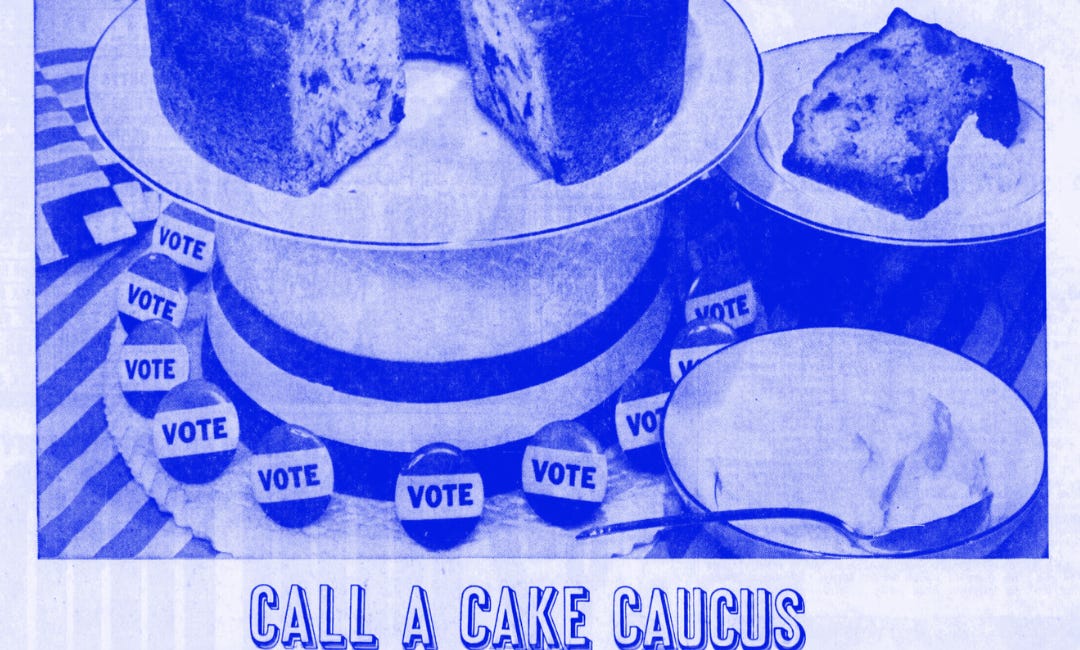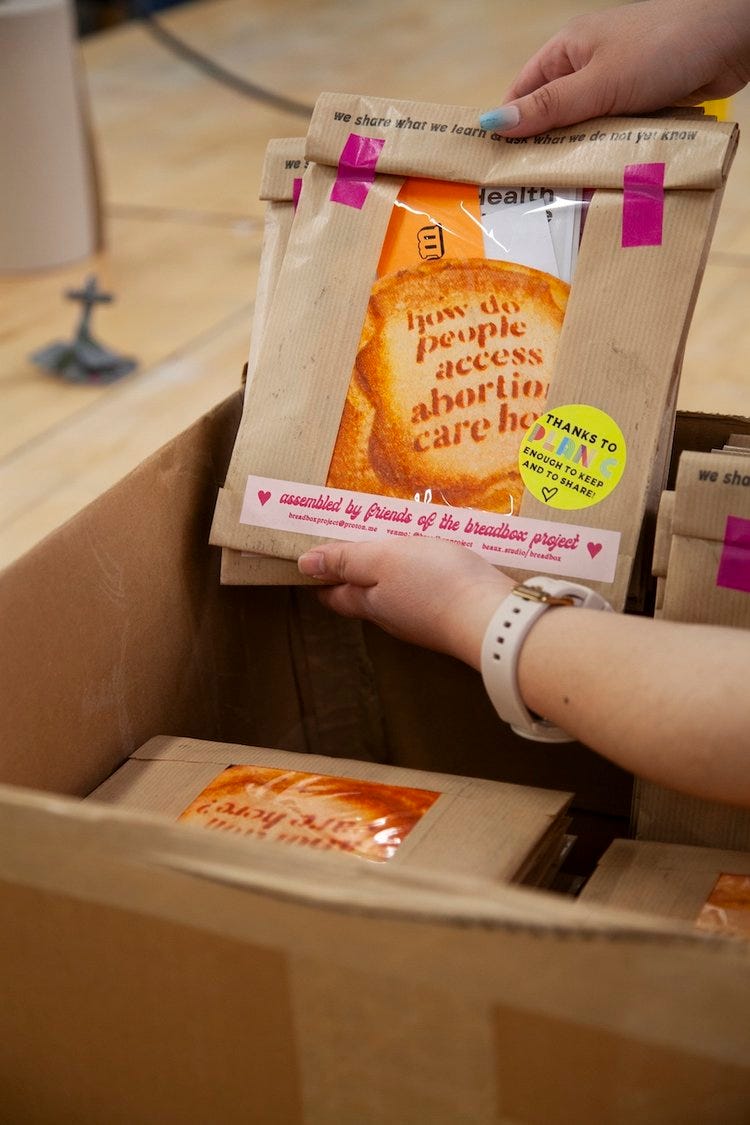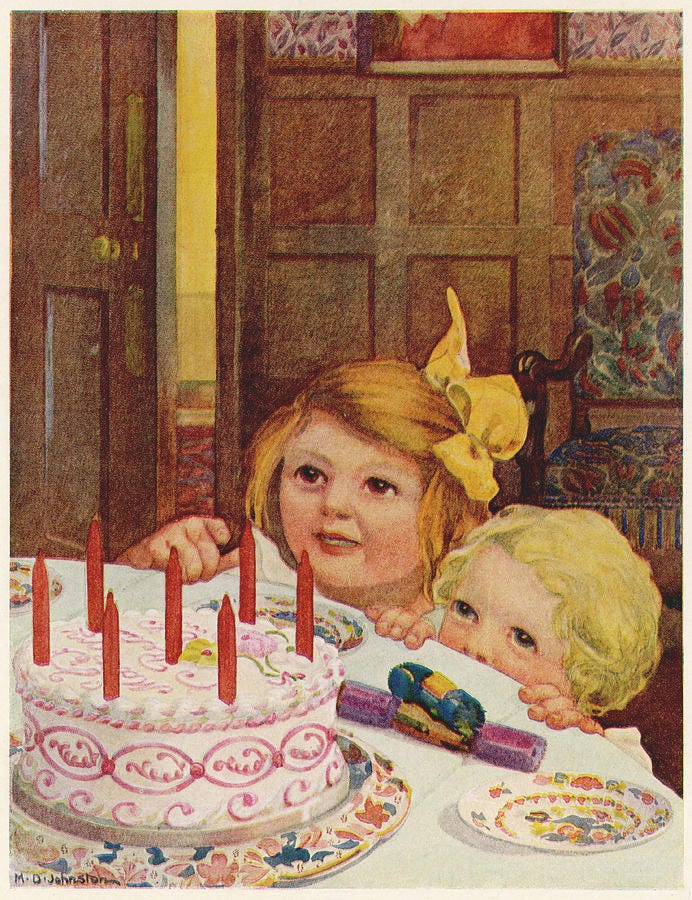Howdy and welcome to Penknife, a newsletter featuring stories, recipes, and bite-sized bits of food history! My name is KC Hysmith and I’m a food scholar, writer, and recipe developer. I’ve worn lots of other name tags in my life (everything from busboy at my local diner to director of communications at the Museum of Food and Drink in NYC), but most everything I do looks at the intersections of food and culture. I also like to write about historical cookbooks, digital baking trends, gendered food labor, and cake. I write a lot about cake.
My friend
, aka The Sweet Feminist and the author of , recently published a similar reintroduction post for her new subscribers and I thought it was a great idea (thanks, Becca!). Be sure to go give her newsletter a read when you’re done here.I chose the name Penknife for a few reasons.
penknife, n.
Originally: a small knife for use in making and mending quill pens. Now usually: a pocket knife with one or more blades (and occasionally other tools) designed to fold back into the handle when not in use.
I liked how the word was akin to pen name, because my writing frequently incorporates hard truths that can give some readers a bit of indigestion, which, as you might surmise, makes a pseudonym seem pretty enticing (but god help me, I love a byline brag). I also really like the dual metaphor of the word, two sharp objects squished together, for scribbling out honed words or slicing up an apple and cheese…or both! As they say, the pen is mightier than the sword (or in this case knife), but only if that pen is sharp, witty, well-rested, not unduly oppressed by capitalism and the patriarchy, and, perhaps most importantly, well-fed.
So if you’re new around here, I’ve got a few places for you to start reading.
You can learn more about me and how I got my start in the world of food.
My life story as told through Cowboy Coffee Cake
In the traditional greeting of my homeland: Howdy. I guess the first thing you should know about me is that I’m from Texas. A place where the chocolate sheet cakes are as wide and as flat as the prairie and the kolaches are as sweet as the sun is hot. And the cowboy cake, don’t get me started on the cowb…
Or read about the history of pumpkin spice and why women can’t have anything nice.
Pumpkin Spice Panic!
The candles have been lit, the cold foams whipped, and now that the scent of pumpkin and spice is barely in the air again, I emerge to advocate for pumpkin spice lovers, largely American women, and their preference for seasonal seasonings. We have been bemoaning, defending, unpacking, questioning, mocking, and talk-to-the-handing this subject to death …
And here I write about one of my favorite subjects: cake history!
Call a Cake Caucus
Over the past few months, I’ve talked to lots of folks about Election Cake and election related foods. I spoke with Jenny Comita about the power of political cakes for T: The New York Times Style Magazine. I chatted with Todd Price at USA Today about Vice President Kamala Harris’ love of cooking and the historical precedents of the women in federal offi…
Sometimes my posts veer more into contemporary food culture (which is still, of course, always connected to the past) and why domestic labor and the kitchen continue to be sites of political activism and messaging.
I frequently talk about the work I do day-to-day including work on cookbooks, like this one.
When Southern Women Cook
Two years ago or so, I sat weeping in front of my computer as I wrote my dissertation acknowledgements. The names listed were nearly all women. I cried for my mom who would never get to read it, and I cried for my grandmothers and aunts and sisters who had already read so many passages along the way. I cried tears of gratitude for the women who became m…
My words find their way elsewhere, too.
I’ve written about the history of Barbie Cake. How farming organizations cultivate their LGBTQ+ roots. And how reproductive rights organizations use recipes and community cookbooks to spread helpful information about abortion access.
My recipes can be found across the internet and in both print and digital publications (I even ran a recipe blog for a long time before starting my PhD). Now I combine my gastronomy training, recipe journalism work, and archival experience to adapt historical recipes for modern kitchens. You can find my recipe for 17th-century lemon posset (a TikTok trend in the summer of 2023) over on the American Historical Association Perspectives on History and my recipe for 17th-century Woodstreet Cake at the Folger Shakespeare Library.
Academically speaking, my research focuses on the intersections of food, gender, the history of technology and the digital landscape. I’ve written about Food Instagram, recipe and hashtag copyright law, and food studies publics. Currently, I’m working on a project about gender and AI ovens. If you truly want to see more of my academic writing, you can check out my personal website (but I promise I’ll distill the best bits for here).
I served as the historical editor and contributor for When Southern Women Cook, the co-editor of the forthcoming book An American Girl Anthology (I also wrote about AG food!), and the associate editor for Edible North Carolina.
The biggest supporters of my work (even if they can’t read my books quite yet) are my two little kids and my husband (though I’m fairly certain his literacy is just fine). We live in North Carolina, a place where the politics of food span the state including meat-processing plants staffed by hard-working immigrants, discriminatory bath room policies in restaurants, Black farmland retention, sea level rise and local fisheries, Indigenous food sovereignty plights in national forests, and censored classroom lessons about the people who first lived off this land and those who later founded its agricultural economy.
In addition to welcoming newcomers and thanking longtime subscribers with a little round up of some favorite reads, this post also serves as reminder: Penknife is never just about food, because food is never just food. This newsletter shares facts and apt historical analysis and sometimes it wont be savory or a treat. Sometimes it will be heavy and sit in the bottom of your stomach like a too-big meal that you carry for the rest of the day. I will aim to juxtapose such hard-to-swallow content with other lighter fare, but with the current state of our nation and the small-minded people who aim to dismantle the many intertwined systems that make our food and our society work, I think we need to be realistic. If we stick together, though, we can also be mighty in the face of all the struggles to come, and Penknife is exactly where the mighty hungry are at home.















you’re incredible
Hi KC!